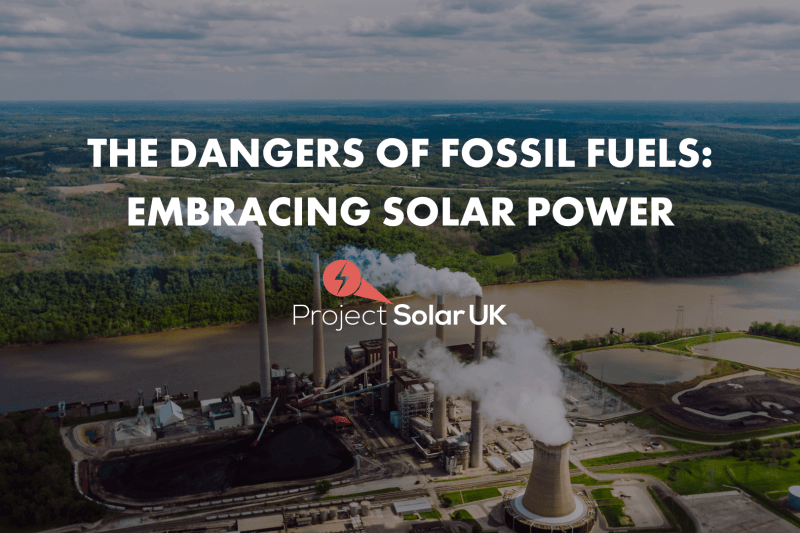Fossil fuels have a devastating effect on the environment, and yet we continue producing electricity and gas using harmful means.
We’re all aware of the costs of fossil fuel production – it’s a major player in the worldwide economy – but do we really know that much about the hidden costs? What are the consequences to our health, the environment, and ecosystems?
What are the key dangers of fossil fuels?
1. Economic and environmental costs
Environmental campaigning community Friends of the Earth recently discovered that UK coal, oil, and gas industries cause an estimated £44 billion in damage yearly (primarily due to their impact on climate change).
Academics have based this staggering figure on what they’ve named ‘the Social Cost of Carbon’: how much environmental damage is done per tonne of greenhouse gas emissions.
With this in mind, countless environmental campaigners are calling for the fossil fuel industry to pay a carbon tax.
By investing money into habitat restoration electric vehicles and scaling up the development of renewable energies, they’re hoping to offset the economic toll fossil fuels have on the UK.
Alongside carbon dioxide, burning gas, coal and oil releases harmful particulates into our environment.
We trap heat in the atmosphere by continually relying on generating electricity from fossil fuels (the second-largest contributor to carbon emissions), which then leads to extreme weather events, soaring temperatures and health problems.
2. Health risks and environmental impact
The health and environmental risks associated with fossil fuels are manifold.
According to researchers at Duke University, a global warming of temperatures by more than 2 degrees Celsius could result in an additional 153 million deaths this century.
In the UK alone, human-made air pollution is thought to be responsible for 28,000-36,000 annual deaths. It can disproportionately affect the elderly, those with pre-existing chronic lung conditions and even anyone living in deprived areas.
A study by the University of Birmingham focused on exploring the effects of long-term exposure to air pollution in Hong Kong, and the results had worrying implications for the UK.
They found that for every 10 microgram per cubic metre increase in exposure to fine particulate matter, the risk of dying from any cancer rises by 22%. Not only does fossil fuel farming affect our bodies, but also vital natural resources.
Extracting and processing fossil fuels can devastate marine life: oil spills continue to make beaches, lakes and community wildlife areas uninhabitable.
To mine coal, large land areas must be stripped and whole mountain tops removed. The effects of fossil fuels on our health and planet are far-reaching and underscore the urgent need to transition to cleaner energy sources.
Why is solar energy the best alternative?
1. Renewable and environmentally friendly
Solar devices, like panels and batteries, allow UK homeowners and businesses to tap into an unlimited energy supply.
Solar panels convert sunlight into electricity that can be used for a wide range of purposes. Whether charging your car or powering appliances, solar systems do not emit harmful pollutants or greenhouse gases to run your home.
By tapping into this inexhaustible resource, we can reduce our reliance on fossil fuels and support the transition towards a more sustainable energy future. The more we use solar energy, the quicker we can mitigate the adverse effects of climate change.
Encouraging a widespread adoption of renewable energy is vital to the long-term preservation of our planet.
2. Economic benefits
According to market insights, the UK solar power market is experiencing rapid growth! The installed base is expected to increase from 15 gigawatts in 2023 to 43 gigawatts by 2028, a compound annual growth rate (CAGR) of 23.53%.
This growth can be attributed to various factors, including supportive government policies, demand for renewable energy and subsidies for solar systems. The UK has seen a significant increase in solar PV installations, particularly.
Rising energy costs are pushing homeowners towards cleaner options, with the UK government registering 15.1 GW of solar capacity across 1,334,453 installations, marking the highest annual increase since December 2017!
There’s also the possibility of job creation, with news sources citing that the number of ‘green jobs’ has tripled since 2021, with 336,000 roles now focused on transitioning to clean energy and reaching our 2050 net zero target.
3. Health benefits
Lowering air pollution levels is paramount to improving the population’s health.
The effects of lung ailments (e.g. bronchitis or asthma) and even certain cancers can be reduced by reducing the amount of pollutants (e.g. methane and carbon dioxide) in the atmosphere.
Air pollution is currently the single biggest environmental threat to health in the UK, and using solar energy to reduce it could decrease the number of related deaths and improve the life quality of those with respiratory and cardiovascular diseases.
Transition to solar energy!
By shining a light on the dangers of fossil fuels, we can see why more and more people in the UK are switching to solar power.
Whether fitting their homes with solar panels or investing in an electric vehicle and solar batteries, transitioning to clean energy can help us save the planet for future generations. To learn how you can play your part in our greener future, contact Project Solar.

